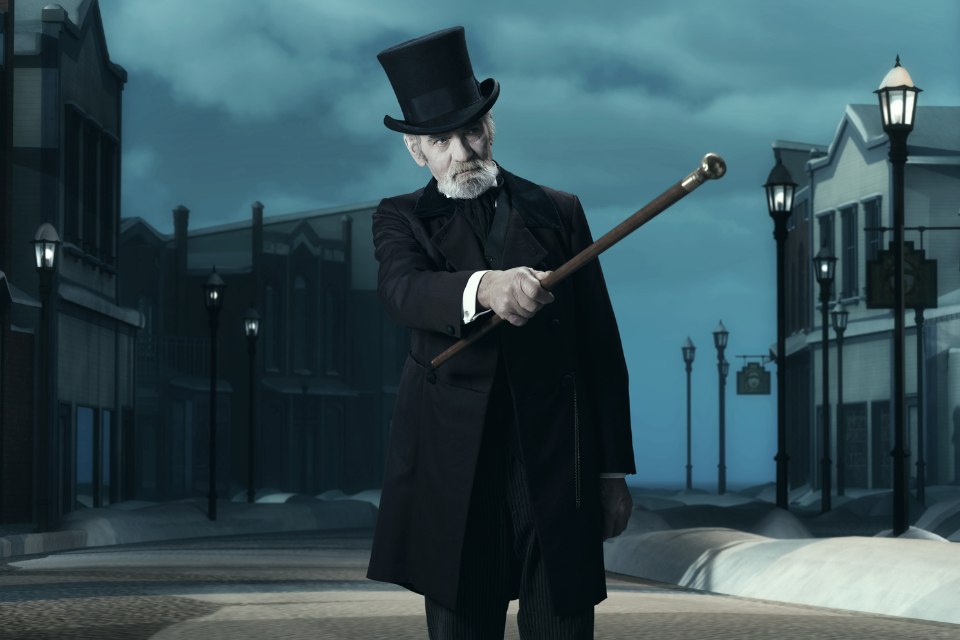The Rev. Paul Perez reflects on his family’s tradition of watching Christmas movies and names this year’s favorite, a movie that depicts a Christmas conversion of the heart.
PAUL PEREZ
Director of Connectional Ministry, Michigan Conference
This Advent, my family has adopted the time-honored spiritual discipline of watching Christmas movies. We unplug from our handheld devices, gather around the big screen, scour the streaming services for the best “free” movie we can find, and watch together.
We’ve done the modern classics—A Christmas Story, National Lampoon’s Christmas Vacation, Home Alone, and Elf. We’ve witnessed countless big-city lawyers return to their small-town homes to save a struggling local business and fall in love with the “one who got away” in all those formulaic, low-budget rom-coms.
I’ve tried unsuccessfully to convince my family to watch two favorites from my childhood—Die Hard and Batman Returns. The debate continues on whether these are truly Christmas movies. I know in my heart that the answer is yes!
So far, my favorite movie this season is a raunchy, R-rated comedy from 2017 entitled A Bad Moms Christmas. The premise is three suburban moms struggling to make Christmas perfect for their families while dealing with surprise visits from their own mothers. The moms make a pact to “take back Christmas” for themselves. High jinks ensue.
The film’s denouement occurs at a midnight Christmas Eve service. The three older mothers find themselves together in the same pew after being confronted about their bad behavior by their adult daughters. Each mother, bathed in the glow of candlelight and choral music, confesses her shortcomings and her love for her family. The main character, Amy, who had just kicked her mother out of her house and her life, appears offering forgiveness and love. Her mother apologizes, wishing she was as close to her daughter as Amy is to her children. Amy responds, “It’s not too late.”
A change of heart that is never too late, in fact, just in time for Christmas. That’s what so many of these Christmas movies have in common. The true classics—A Christmas Carol and It’s a Wonderful Life—perfected the genre. Scrooge confronts his greed and loneliness. George Bailey faces professional failure and an existential midlife crisis, wondering if his life had meaning or value. These plots are not too far from three moms and their adult mothers struggling with the unforgiving demand of producing the dream of a late modern, White-suburban-perfectionist, consumer-driven Christmas.
Like all movies, the book is always better. By book, I mean, of course, the original Christmas source material. To be even more specific, the story of a young, unwed mother who suddenly and surprisingly discovers she is pregnant with the Messiah. Her response? Mary rolls with it and turns the Gospel of Luke into the original Christmas musical, singing:
“My soul magnifies the Lord, and my spirit rejoices in God my Savior,
for he has looked with favor on the lowliness of his servant.
Surely, from now on all generations will call me blessed;
for the Mighty One has done great things for me, and holy is his name.
His mercy is for those who fear him from generation to generation.
He has shown strength with his arm; he has scattered the proud in the thoughts of their hearts.
He has brought down the powerful from their thrones, and lifted up the lowly;
he has filled the hungry with good things, and sent the rich away empty.
He has helped his servant Israel, in remembrance of his mercy, according to the promise he made to our ancestors, to Abraham and to his descendants forever” (Luke 1:46-55, NRSV).
Mary, her life turned upside down, imagines the entire world—indeed the entire cosmos—being turned upside down, pivoting around the Word made flesh—Jesus the Christ.
Even in our increasingly secularized age, this Christmas conversion still resides deep within our collective cultural imagination. The possibility of an encounter that turns our lives about. The longing for a 180-degree turn from unsustainable and destructive ways of living. The beauty of a life turned toward love, generosity, reconciliation, and community.
These films, like the statue to an unnamed God Paul surveyed centuries ago in the Areopagus (Acts 17:16-34), are testaments to an unnamed hope that our lives might be upended and overturned by love. High art? Certainly not. But a high hope? Yes.
Christ, it turns out, can never truly be left out of Christmas. To paraphrase Carl Jung, “Bidden or unbidden, Christ is present.” Even when the distance between us and the Divine seems immense. Even when sacred things wander out of our thoughts and our memories. Even when we are resigned to the fact that nothing is new under the sun. We might just turn the corner and encounter the one named Emmanuel, “God is with us,” and never be the same again.
Last Updated on December 20, 2022

